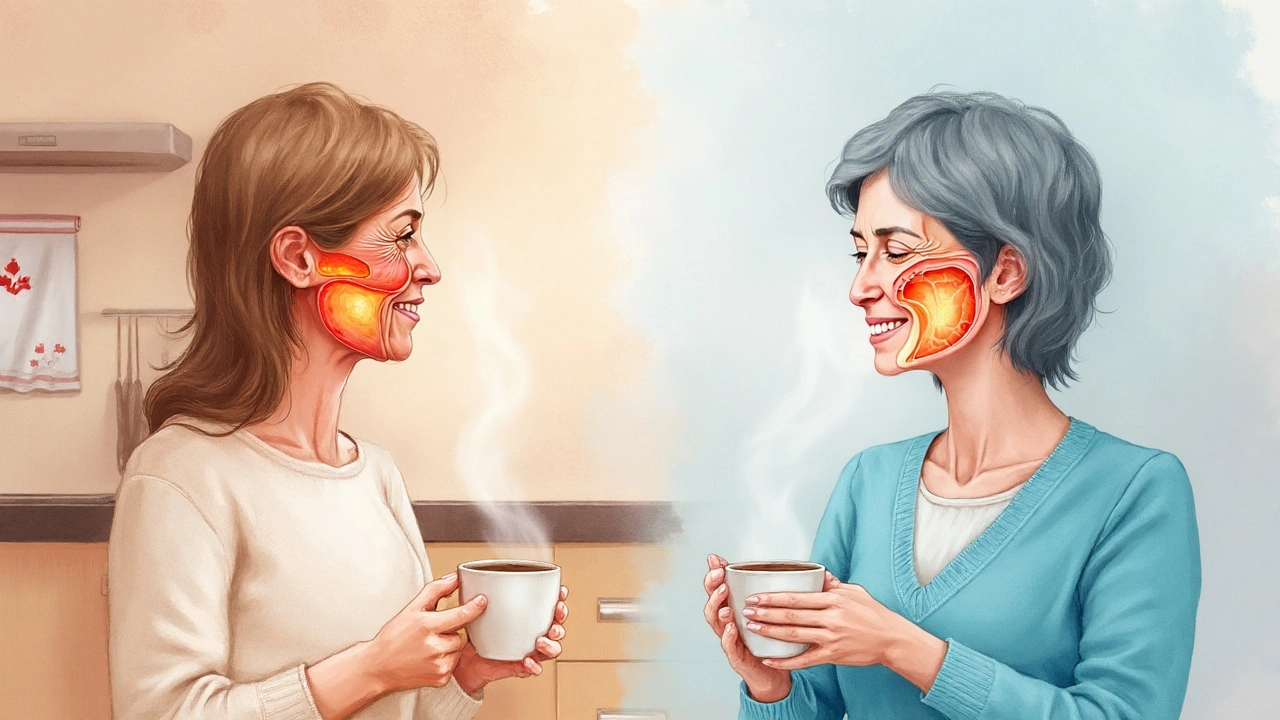Sinusitis Explained: What It Is and How to Get Relief
If your nose feels stuffy, you’ve got pressure around your eyes, or you’re dealing with a lingering cough, chances are you’re dealing with sinusitis. It’s basically an inflammation of the sinus cavities that can turn a normal cold into a painful, weeks‑long problem.
Why Sinusitis Happens
Most sinus infections start after a cold, flu, or allergy flare. The lining of your sinuses swells, mucus can’t drain properly, and bacteria or viruses get trapped. There are two main types: acute (lasting up to four weeks) and chronic (lasting more than 12 weeks). Acute sinusitis often clears up with rest and a few over‑the‑counter meds, while chronic sinusitis may need prescription treatment or a specialist.
Spotting the Symptoms
Typical signs include:
- Facial pain or pressure, especially around the forehead, cheeks, or behind the eyes
- Thick, yellow or green nasal discharge
- Reduced sense of smell
- Headache that worsens when you bend over
- Bad breath and a cough that gets worse at night
If you notice any of these for more than a week, it’s worth checking in with a doctor – especially if you have a fever over 101°F or swelling around the eyes.
While you wait for an appointment, a few home tricks can ease the pressure. A warm steam shower or a humidifier adds moisture to the air, helping mucus flow out. Saline nasal sprays or a neti pot rinse clear out irritants without chemicals. Staying hydrated and avoiding smoke or strong perfumes also reduces irritation.
When it comes to medication, OTC options like ibuprofen or acetaminophen can cut the pain, and decongestant pills or sprays shrink swelling. Just don’t use nasal sprays for more than three days—overuse can actually make the congestion worse.
For chronic cases, a doctor may prescribe nasal steroids, antibiotics (if bacteria are involved), or recommend a sinus CT scan to spot structural issues. In some stubborn cases, ENT specialists perform a sinus lift or balloon sinuplasty to open blocked pathways.
Prevention is easier than you think. Keep allergies under control with antihistamines, wash your hands often during cold season, and consider a daily saline rinse if you’re prone to sinus trouble. Avoiding sudden temperature changes and staying hydrated also keep the mucus thin and moving.
Bottom line: sinusitis can be a nuisance, but knowing the signs, using simple home care, and getting professional help when needed can get you breathing easy again in no time.
How Ear Canal Infections Trigger Sinus Problems - Causes, Symptoms & Relief
Explore how ear canal infections are linked to sinus problems, why they happen, shared symptoms, and practical steps to prevent and treat both conditions.
